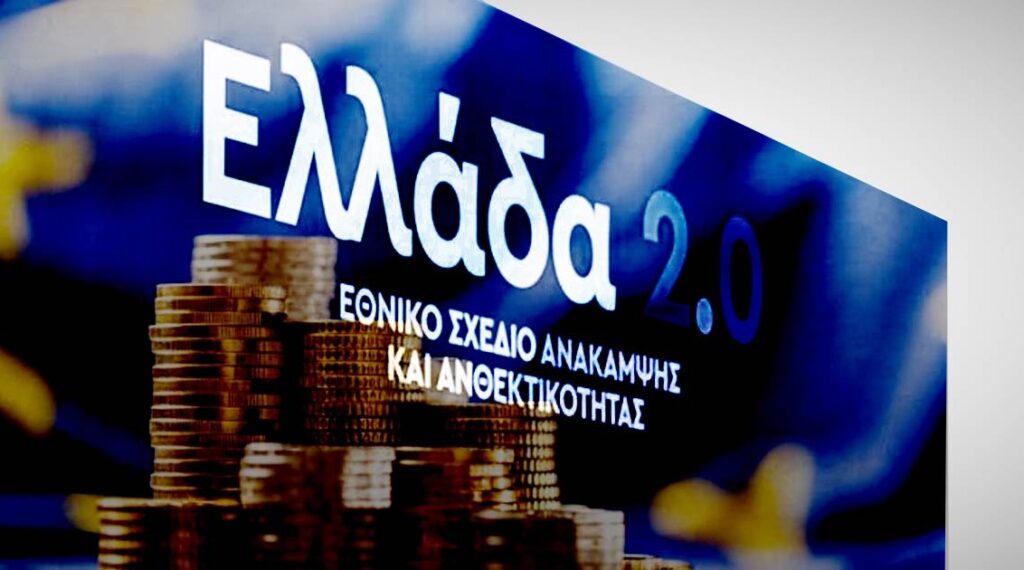
The 27 heads of state of the European Union finally reached an agreement on the Recovery Fund and the EU's seven-year budget after five days of marathons and tough negotiations.
They approved a plan totalling €750 billion euros, which will be raised by issuing – for the first time – a common European debt and will be included in the EU's next Multiannual Financial Framework (2021-2027), amounting to €1.074 trillion. euros. Out of a total of EUR 750 billion, this is the case. EUR 390 billion. they will be in the form of grants and the EUR 360 billion will be allocated to them. euro the form of loans.
Recovery Fund: 70 billion. euro for Greece
As announced by the Prime Minister, the Greek delegation is leaving Brussels with a total package that exceeds the €70 billion euros. Of these, as the Prime Minister said, the €19 billion they relate to grants, the EUR 12.5 billion. in loans and balances from the European budget.
"We finally succeeded today in having launched a very ambitious response, a response that responds to the symmetrical shock that the pandemic is causing to all economies. I think it is a reaction that shows that Europe is listening to the roar of impending events. Circumstances define us and our choices ultimately define us, and today Europe has shown that it can rise to the occasion. Responds with a €750 billion Recovery Fund and with a budget for the next 7 years of 1.074 trillion euros. euros", said the Prime Minister.
"For the first time our country is gaining access to such ambitious financial tools. We are returning to Athens with a total package of more than €70 billion. Mr. Mitsotakis stressed that this is an unprecedented size for our country, in order to underline: We have finally succeeded through a process of mutual concessions, compromises, things that are customary at European level: to protect above all the programs that have significant national allocations. And of course Greece, having now regained its credibility at European level, was invited to participate and we actively participated in all the negotiations that took place in the last 4 twenty-four hours. We also participated in the co-shaping of European decisions for the benefit of the citizens, for a response that the whole of Europe is sending together today, a Europe that shows solidarity, supports the economy and citizens in these exceptional circumstances," the Greek Prime Minister said.
"The subsidies that our country will receive from the additional program approved correspond to an additional NSRF - something more than €19 billion to which is added around EUR 12.5 billion. in loans to reach the final amount of 32 billion again - and this money will be disbursed on terms more flexible than the existing NSRF, more directly, and the possibility of retroactive eligibility will be given from the beginning of 2020," he said.
What the EU leaders' agreement provides for
European Union leaders reached an agreement on Tuesday morning on a package of measures from the Recovery Fund that will boost their economies after the pandemic, agreeing to borrow and spend hundreds of billions of dollars on the economy. euros in the coming years and repay them through new taxes.
- Key to the deal is a new element in EU policymaking: The Commission will borrow huge sums from the market and then give away most of the money instead of lending it to countries that need the economy most of the boost.
EU leaders agreed that the Commission will borrow €750 billion cheaply. euro, building on its AAA assessment. Of this amount, it will distribute the €390 billion in grants and €360 billion on cheap loans.
- The subsidies oblige the Union to create funds to repay the loans by 2058. Leaders agreed that:
- Germany, Sweden and the Netherlands will lose the current deduction on the amount of VAT they transfer to the EU
- EU countries will impose a tax on non-recyclable plastic and transfer the proceeds to EU coffers.
- from 2023 there will be a tax on goods imported into the EU from countries with lower emission standards than those in force in the Union.
- A tax on financial transactions is another option, such as obtaining some money from extending the emissions trading system to the maritime and aviation sectors.
Such new taxes will be explicitly allocated to the repayment of EUR 750 billion. euros borrowed, but they will become part of the reality of the EU for the next 38 years.
- The grants will be distributed to countries presenting projects that enhance their growth potential, job creation and the economic and social flexibility of their economies. The plans must also make economies greener and more digital and be in line with the Commission's annual recommendations.
The disbursement will require the approval of a qualified majority of EU governments and will be linked to the achievement of milestones and targets. If any EU government considers that these targets have not been met, it can ask EU leaders to discuss it within three months.
The money will also be linked to upholding the rule of law – an issue for Poland and Hungary which are under investigation by the EU for their rule of law practices. However, there will be a major political drift: if the Commission decides that there are "obvious generalised deficiencies in the good governance of member states' principles regarding respect for the rule of law", it can propose measures that should have the support of a qualified majority of governments.
- To secure their support for the recovery plan, countries contributing to the EU budget, such as the Netherlands, Sweden, Austria, Denmark and Germany, will receive much greater discounts than in the past on what they have to give each year to EU coffers, based on the size of their economies.
The distribution of the amounts from the Recovery Fund (Next Generation EU) is as follows:
- Recovery and Resilience Facility (RRF) 672.5 billion euros of which the loans will be EUR 360 billion and grants will be EUR 312.5 billion. euros. The new Recovery and Resilience Facility, which will provide financial support for investments and reforms, including in relation to the green and digital transitions and the resilience of national economies, linking them to EU priorities.
- ReactEU: 47.5 billion euros to be allocated on the basis of the severity of the socio-economic impact of the crisis, including the level of youth unemployment and the relative prosperity of member states.
- Horizon Europe: €5 billion to be made available for the programme "Horizon Europe". Horizon Europe will be allocated to Horizon Europe to fund vital research in the field of research. The European Union will be set to open up a new European Research Area to fund vital research in the field of health. , resilience and the green and digital transition.
- InvestEU: 5,6 billion euros to upgrade the programme which will succeed the current Juncker Investment Package from 2021.
- Rural Development: 7,5 billion euros will be made available for the Rural Development Fund to support rural areas in making the structural changes necessary in line with the European Green Deal and in achieving the ambitious targets in line with the new Biodiversity Strategy and the Farm to Fork Strategy.
- Just Transition Fund (JTF): 10 billion euros for the Fair Transition Fund , to assist Member States in accelerating the transition to climate neutrality.
- RescEU: €1.9 billion will be made available for the mechanism Union's Civil Protection Mechanism. , which will be expanded and strengthened to enable the Union to prepare for and respond to future crises




